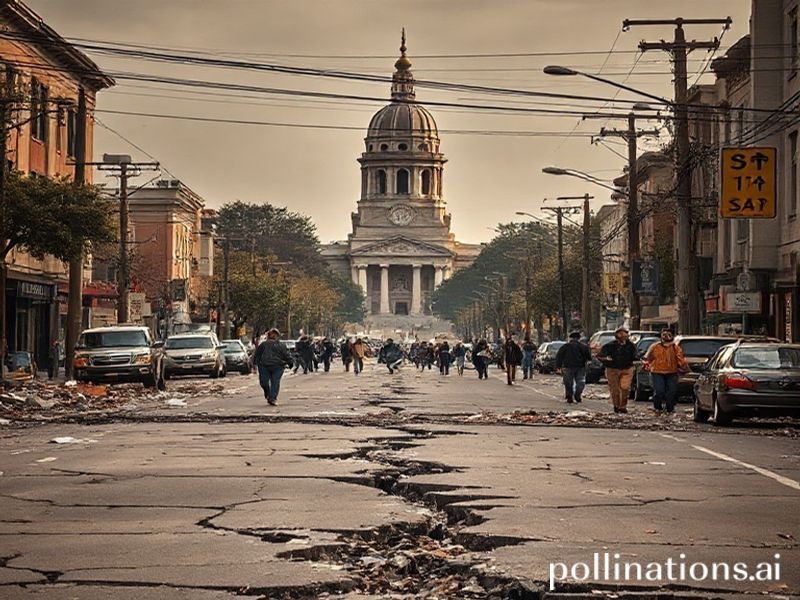The Big Shake-Up: Why ‘Earthquake Berkeley’ Has the Internet Buzzing Like a Fault Line
**The Big Shake-Up: Why “Earthquake Berkeley” Has the Internet Buzzing Like a Fault Line**
Alright, internet denizens, grab your memes and your earthquake kits because we’re diving into the trending topic that’s got the world shaking—literally and figuratively. “Earthquake Berkeley” has taken the digital sphere by storm, and we’re here to unpack why this seismic event has become the talk of the town (or should we say, the web).
**The Big One (But Not in the Way You Think)**
First things first, let’s set the stage. On [insert date], Berkeley, California, experienced a significant earthquake that sent shockwaves through the city—and the internet. With a magnitude of [insert magnitude], this quake was strong enough to rattle windows, spook pets, and send Californians into their well-rehearsed “drop, cover, and hold on” routines. But why has this particular earthquake captured global attention?
**The Cultural Context: California Dreamin’ on a Fault Line**
California is no stranger to earthquakes. The state sits on the infamous San Andreas Fault, a hotspot for seismic activity. But Berkeley? That’s a name that carries weight beyond its geographical location. Home to the University of California, Berkeley, this city is a hub of intellectual prowess, activism, and, let’s be honest, some seriously good coffee.
When an earthquake hits a place like Berkeley, it’s not just about the physical impact. It’s about the cultural significance. Berkeley is a microcosm of California’s unique blend of innovation, activism, and resilience. So, when the ground shakes beneath this iconic city, the world takes notice.
**The Social Impact: From Memes to Preparedness**
In the age of social media, disasters and natural events often become fodder for internet culture. The “Earthquake Berkeley” trend is no exception. From memes about “California finally falling into the ocean” to tweets about how the quake interrupted someone’s Zoom meeting, the internet has turned this seismic event into a digital watercooler moment.
But beyond the memes, there’s a serious side to this trend. The “Earthquake Berkeley” hashtag has also sparked important conversations about preparedness, safety, and the reality of living on a fault line. Californians are sharing tips on earthquake kits, discussing early warning systems, and reminding each other to secure heavy furniture. It’s a blend of humor and practicality that’s quintessentially internet.
**Why This Matters: A Global Wake-Up Call**
The global trend of “Earthquake Berkeley” highlights a few key points. First, it underscores the interconnectedness of our world. A local event in Berkeley can capture the attention of people across the globe, thanks to the power of the internet. Second, it shows how natural disasters can bring people together, fostering a sense of community and shared experience.
Moreover, this trend serves as a reminder of the very real risks associated with living in seismic zones. It’s a wake-up call for those who might be complacent about preparedness. And let’s not forget the role of humor in coping with adversity. The internet’s ability to turn even the most serious events into memes is a testament to our collective resilience and creativity.
**Conclusion: Riding the Waves of Internet Culture**
So, why is “Earthquake Berkeley” trending globally? It’s a perfect storm of cultural significance, social impact, and internet culture. It’s a reminder that even in the face of natural disasters, we find ways to connect, share, and laugh. And as the digital world continues to evolve, so too will our collective response to events like these.
In the meantime, stay safe, stay prepared, and keep those memes coming. After all, if the ground is going to shake, we might as well laugh about it.







